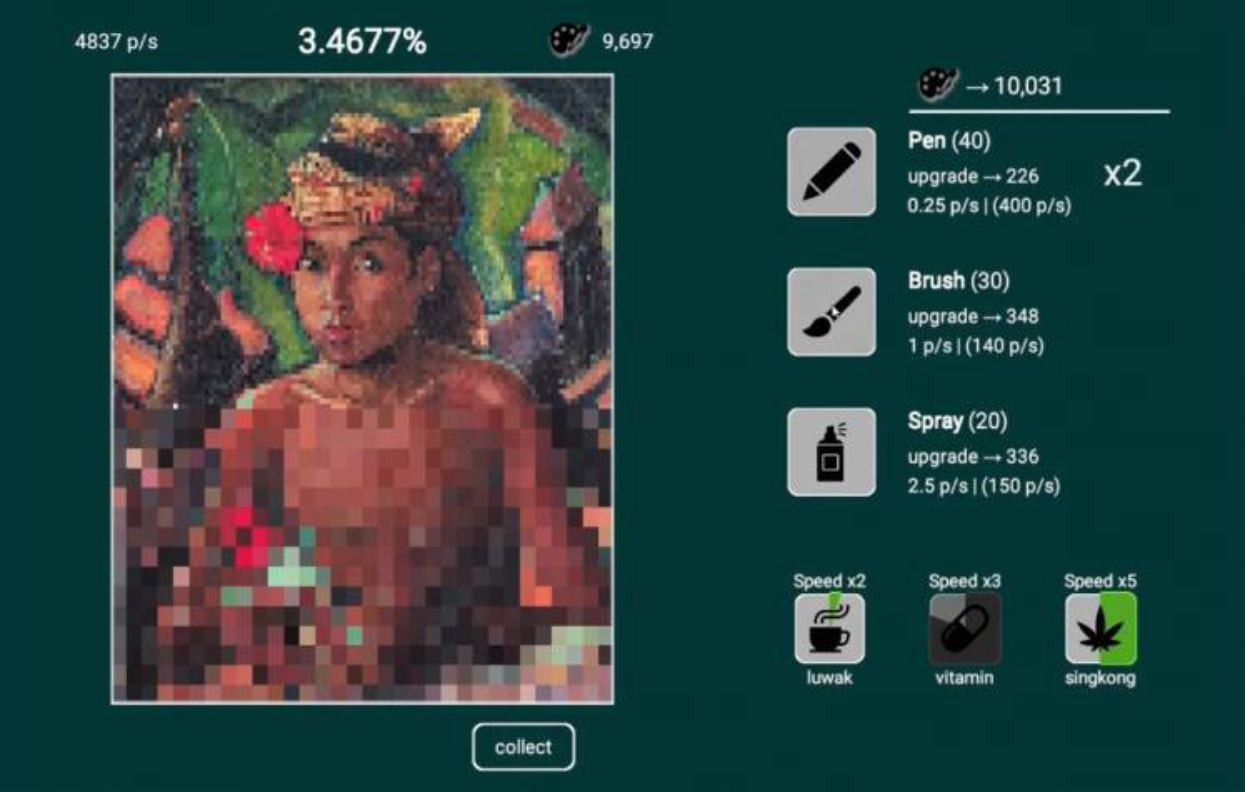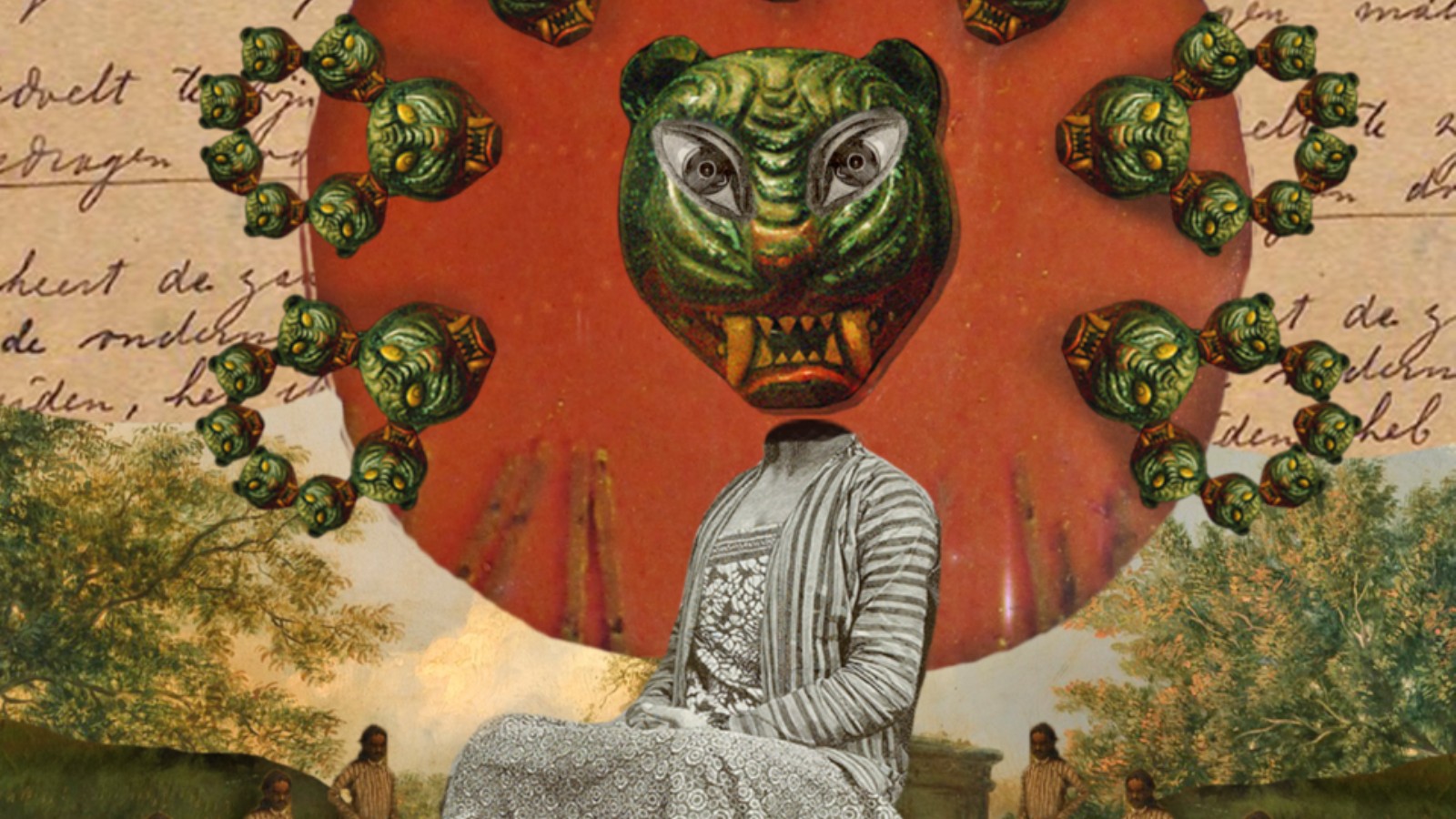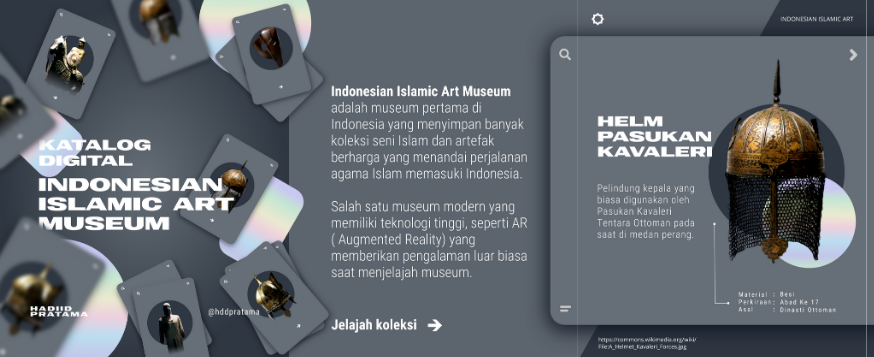2021-01-18
Series "Digital formats"
Authors
Ivonne Kristiani
is Project Coordinator for the Information & Library Department at Goethe-Institut Jakarta. She is an advocate for open access and open license and is a Creative Commons Global Network member. She has been member of the Board of Executives of Wikimedia Indonesia since 2011.
Cultural Collaboration in the Digital Era
Hacking and Mixing during the Indonesian Retas Budaya Hackathon

When developing digital formats, it can be difficult for galleries, libraries, archives and museums (GLAM) to involve potential users and new groups instead of spinning in their own circles. In order to be successful, hackathons such as Retas Budaya ("Hack Your Culture”) are a great way to integrate new perspectives.
Series "Digital formats"
Faced with a global pandemic, GLAM institutions had to shut their doors to the public. Digital presence is now more than ever urgently required to meet the needs of their audiences. Therefore, an open cultural data festival was recently held in Indonesia: Retas Budaya. The online festival and hackathon brought together cultural institutions with creative minds to transform open cultural data into something else altogether.
This program is a collaboration between Goethe-Institut Indonesien, Indonesian Directorate General of Culture, Wikimedia Indonesia, Indonesian Game Association, Indonesian Institute of Sciences, and publisher Elex Media Komputindo.
In line with the global OpenGLAM movement advocating free and open access to cultural artefacts, one of Retas Budaya’s goals is to make cultural heritage accessible online. While GLAM institutions have always had a key role in providing access to knowledge and culture, Retas Budaya wants to push this access even further by encouraging public participation to reuse their cultural artefacts.
In Indonesia, only a small number of GLAM institutions are digitizing their collections. Even so, these institutions have yet to develop their digital presence, let alone having open access initiatives. Although awareness of open access is growing among a small group of university researchers, it is not yet being embraced by the GLAM sector where the focus was on driving on-premise visits.
Organizing the hackathon
Because Retas Budaya was a new kind of project, the team worked hard to convince institutions to embark on this experiment. The preparation for Retas Budaya began in September 2019. During that early stage the focus was on building relationships with GLAM institutions as well as raising their awareness and understanding on open access.
Most importantly, this initial phase is needed to map out which institutions are ready for a digital hackathon. Some might be really enthusiastic about it, but not yet have a digital collection. To address this, we partnered with Wikimedia Indonesia, which has a dedicated GLAM team, and could mobilize volunteers to help with digitization and publication to open repositories such as Wikimedia Commons. Digitalization is a labour intensive and time-consuming work; therefore early preparation is as important as is support, especially for smaller organisations, e.g. in the form of financial subsidies or volunteering.
Eleven cultural institutions in Indonesia finally decided to participate. Their participation means that more than 2,500 Indonesian cultural artefacts are now available to the public online. For most institutions this is the very first time they publish their collections online with an open license. That means they relinquish some of their control by allowing anyone to use, reuse and remix those collections. Some were sceptical but are now finally seeing the results.
What happens during Retas Budaya?
Unlike usual hackathons with a focus on digital applications, Retas Budaya was a creative challenge for designers, writers and game developers. Participation in Retas Budaya is divided into four tracks, each targeting a specific group of creative communities. The tracks are "Stories from Data”, "Games from Data”, "Open Design Remix”, and "Citizen Science & Open Data”. Across all tracks, more than 150 creatives took part in the hackathon.
Designing a hackathon is not without its difficulties. The main concern while planning the tracks was if people will be interested in participating. To attract participants, Retas Budaya focused on intrinsic motivation instead of big prize incentives. By designing each track around a specific skill/end-product, participants were asked to do what they love to do while receiving recognition for it. Writers would join because they love writing. Game developers would join because they want to have fun creating games.
The main takeaway is that in organizing a hackathon, it is not enough to look only at the needs and problems of the cultural institutions. We need to consider the interest and motivation of the participants as well since they are the main collaborators.
Beside a hackathon, another important part of the event was the mini-conference, where speakers from Europe, Indonesia, India, and New Zealand shared their experiences and perspectives on implementing open access in GLAM institutions. The recorded sessions and program are available here.
A digital collage workshop was also held during the festival in which participants from the public made their own digital collages using the open images provided by the partner institutions. The participants were happy to learn a new skill. But most importantly, this workshop incited a discussion around open access and copyright among them.
In keeping with the spirit of the festival, the closing performance was a "hack” of open cultural data. The performance group Edjaan Peralihan designed their music performance based on the 1960-1990s archives of Horison Magazine, an important Indonesian literature magazine. Their performance consisted of several compositions based on poetry, short stories and cultural notes from the magazine.
The winners
"Stories from Data” participants wrote short stories inspired by the cultural artefacts made available by the GLAM partners. They then uploaded them to the writing platform Gramedia Writing Project, an Indonesian online community forum and publishing opportunity for writers. This track was coordinated with our partner, the publisher Elex Media Komputindo. This track’s winner was "Pelontak”, a short story by Sholihati Lathifa Sakina. It revolves around the life of Wulan, a young woman from Sumbawa (an Indonesian island, located in the Lesser Sunda Islands chain), who has to endure pressure from her parents and relatives for not getting married even though her younger brothers have. Sholihati based "Pelontak” on the poem "The Long Wait” by Subagio Sastrowardoyo, published by Horison magazine in 1989.
The "Games from Data” track was organized with the help of the Indonesian Game Association. In this track, participants designed digital games during a 3-day Open Data Game Jam that incorporated cultural data. All of the games are published on itch.io. The winner in this category is the game "Good Artist Copy, Great Artist Steal" from SandBox team. It is an idle game where the player has to copy painting collections from Museum Pasifika Bali. For the student category, Pudidi Cult team wom the prize with their game "Arthiefactor”, an action boss rush game about stolen Indonesian artefact.
In cooperation with Gimpscape (a community of graphic designers using the open source software FOSS), participants of the third track "Open Design Remix” were asked to create a catalogue using the image collections made available by partner institutions. In this category, the best design was a catalog of the collection of Indonesian Islamic Art Museum by Hadiid Pratama.
Finally, in the "Citizen Science & Open Data" track the public contributed to research by uploading their documentation of cultural data to the national science repository managed by Indonesian Institute of Sciences. The winner submitted data on traditional houses in Padang, West Sumatera.
The importance of collaboration
GLAM institutions must adapt by finding new ways to serve their audiences in a rapidly changing digital world. They should take an active approach by meeting their audiences where they are. But the new technologies can be overwhelming, especially if institutions have neither experience nor dedicated human resources to manage them, as is the case with most small private museums and libraries in Indonesia. This is where collaboration is key. GLAM institutions do not need to do everything by themselves. A collaboration with other organizations that have the appropriate skills and networks could be of great assistance.
Each organizing partner in Retas Budaya has its own specific domain and role that can significantly benefit all. For instance, Wikimedia Indonesia took on the role of reaching out to GLAM institutions and helping them digitize their collections. Other partners focus on designing hacking tracks specific to their domain. Reaching out to their game developer followings, the Indonesian Game Association designed and organized Open Data Game Jam while Elex Media made use of its writing platform to engage the interest of a huge community of writers to participate in writing short stories. At the same time, the Indonesian Institute of Sciences appealed to its community to volunteer in citizen science. Finally, to bring graphic designers on board, Retas Budaya collaborates with Gimpscape, a community of designers using open-source software for their work.
These alliances have proven to be fruitful. Integrating different skillsets opens up new possibilities in communicating cultural artefacts. Moreover, most of the hackathon participants had never before visited the partnering institutions, and some have never even heard of them. This is partly because the participants come from all over Indonesia and have never visited the city where the institutions are located. Nonetheless, they are excited about the idea that they can toy around with open cultural data and create something new.
The partnering institutions were delighted with the result of the hackathons - they had never imagined their collections could be transformed creatively. Some of them are contacting the participants for further cooperation.
Despite the hardships of the pandemic, cultural institutions should adapt and innovate to fulfil their mission to serve and educate the public. Retas Budaya has shown that collaboration is the way to achieve these goals. Some partner institutions are now becoming interested in using digital games as a way to reach their audience - An approach that was almost unheard of before. However, this is only the beginning. Cultural institutions need to further experiment and test what are the formats and strategies that suit them most. But the possibilities for digital innovation are abound.



There are no comments for this content yet.
similar content

